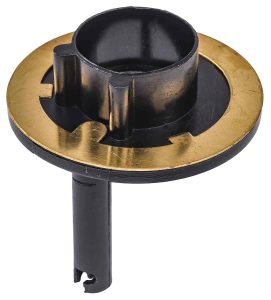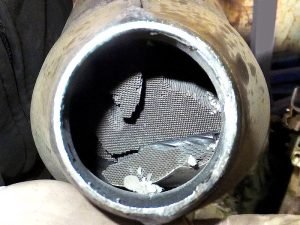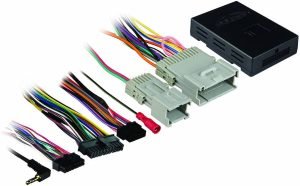The automotive industry has seen remarkable advancements in engine technology, and Ford has been at the forefront with its innovative EcoBoost engines. When it comes to choosing between the 2.7 EcoBoost and 3.5 EcoBoost engines, there are several factors to consider. In this article, we’ll dive into the details of these engines, their performance, fuel efficiency, and help you make an informed decision when deciding between the two.
Contents
Understanding EcoBoost Technology
Before we delve into the specifics of the 2.7 EcoBoost and 3.5 EcoBoost engines, let’s take a moment to understand what EcoBoost technology is all about. EcoBoost is a turbocharged, direct-injection engine technology developed by Ford. It combines power and efficiency by using smaller engines with turbocharging to deliver the performance of larger, naturally aspirated engines while consuming less fuel.
2.7 EcoBoost Engine
The 2.7 EcoBoost engine is a compact yet powerful option. It features a V6 configuration with a displacement of 2.7 liters. Despite its smaller size, this engine packs a punch. With advanced engineering and turbocharging, it delivers impressive power and torque, making it suitable for various applications.
In terms of performance, the 2.7 EcoBoost engine offers excellent acceleration and responsiveness. Its turbocharging system provides a quick boost, delivering a thrilling driving experience. Additionally, this engine offers commendable fuel efficiency, allowing you to save on fuel costs while enjoying its power.
3.5 EcoBoost Engine
On the other hand, the 3.5 EcoBoost engine is a larger option with a V6 configuration and a displacement of 3.5 liters. This engine is designed for those who prioritize power and towing capacity. It offers robust performance and can handle heavy loads with ease.
The 3.5 EcoBoost engine delivers impressive power and torque, making it suitable for demanding tasks such as towing trailers or hauling heavy cargo. It offers exceptional acceleration and responsiveness, giving you the confidence to conquer any road or terrain. While the 3.5 EcoBoost engine may consume slightly more fuel than its smaller counterpart, it compensates with its exceptional performance.
Comparing 2.7 EcoBoost and 3.5 EcoBoost
Now that we have explored the individual characteristics of the 2.7 EcoBoost and 3.5 EcoBoost engines, let’s compare them side by side to help you make an informed decision.
Power and Torque: Both engines deliver impressive power, but the 3.5 EcoBoost engine holds an advantage with its larger displacement. It offers higher horsepower
Comparison of Power and Torque:
Both the 2.7 EcoBoost and 3.5 EcoBoost engines deliver impressive power, but the 3.5 EcoBoost engine holds an advantage with its larger displacement. It offers higher horsepower and torque figures compared to the 2.7 EcoBoost engine. The additional displacement allows the 3.5 EcoBoost engine to generate more raw power, making it a suitable choice for those seeking exhilarating performance.
Fuel Economy:
When it comes to fuel efficiency, the 2.7 EcoBoost engine has the upper hand. Its smaller size and advanced turbocharging technology contribute to better fuel economy compared to the 3.5 EcoBoost engine. If you prioritize fuel efficiency and want to minimize your visits to the gas station, the 2.7 EcoBoost engine may be the preferred choice.
Towing Capacity:
If you require a vehicle with exceptional towing capabilities, the 3.5 EcoBoost engine is the clear winner. Its larger displacement and robust design allow it to handle heavy loads with ease. Whether you’re towing a boat, a camper, or hauling construction equipment, the 3.5 EcoBoost engine provides the necessary power and torque for your towing needs.
Price and Availability:
In terms of price, the 2.7 EcoBoost engine tends to be more affordable compared to the 3.5 EcoBoost engine. However, it’s important to note that the price can vary depending on the specific vehicle and trim level. Additionally, availability may also differ based on the models and configurations offered by Ford. It’s recommended to check with your local dealership for the most accurate pricing and availability information.
Which One Should You Choose?
Choosing between the 2.7 EcoBoost and 3.5 EcoBoost engines ultimately depends on your specific needs and preferences. If you prioritize fuel efficiency, agility, and a more budget-friendly option, the 2.7 EcoBoost engine is an excellent choice. On the other hand, if you require robust power, exceptional towing capacity, and don’t mind slightly lower fuel efficiency, the 3.5 EcoBoost engine is a reliable and capable option.
In the end, it’s essential to consider factors such as your driving style, intended usage, and personal preferences when making a decision. Test driving vehicles equipped with both engines and consulting with knowledgeable professionals can also provide valuable insights to help you make an informed choice.
Which engine brand will provide the best performance for my car?
When considering which engine brand will provide the best performance for your car, it is important to also consider the suspension brands comparison. The right combination of engine and suspension can greatly impact your car’s overall performance and driving experience. Research and testing can help you find the perfect match for your vehicle.
Conclusion
Ford’s EcoBoost technology has revolutionized the automotive industry by offering a powerful and efficient engine option. The 2.7 EcoBoost and 3.5 EcoBoost engines exemplify the benefits of this technology, each catering to different needs and preferences.
Whether you prioritize fuel efficiency, towing capacity, or exhilarating performance, Ford’s EcoBoost engines deliver impressive results. By understanding the unique characteristics and features of the 2.7 EcoBoost and 3.5 EcoBoost engines, you can confidently choose the engine that best aligns with your requirements.
FAQs
Can I upgrade my vehicle with an EcoBoost engine?
- Yes, depending on the make and model of your vehicle, it may be possible to upgrade to an EcoBoost engine. However, it’s essential to consult with a certified mechanic or authorized dealership to ensure compatibility and feasibility.
Are EcoBoost engines reliable?
- Ford’s EcoBoost engines have proven to be reliable and durable. They undergo rigorous testing and are designed to deliver consistent performance over an extended period. Proper maintenance and regular servicing are crucial for ensuring the longevity of any engine, including EcoBoost engines.
Are EcoBoost engines more expensive to maintain?
- The cost of maintaining an EcoBoost engine is generally comparable to other engines in its class. However, However, it’s important to note that some specific components of EcoBoost engines, such as turbochargers, may require additional maintenance or eventual replacement over time. These components can be more expensive compared to non-turbocharged engines. It’s crucial to follow the manufacturer’s recommended maintenance schedule and address any issues promptly to ensure optimal performance and longevity of your EcoBoost engine.
Can I use regular gasoline in an EcoBoost engine?
- Yes, EcoBoost engines are designed to run on regular unleaded gasoline. However, for optimal performance, it’s recommended to use fuel with the octane rating specified by the manufacturer. Using higher octane fuel may enhance performance in some cases, but it’s not necessary for regular operation.
How does EcoBoost compare to other engine technologies?
- EcoBoost technology offers a unique blend of power and efficiency compared to traditional naturally aspirated engines. It provides the performance of larger engines while offering improved fuel economy. In comparison to other engine technologies, such as diesel or hybrid, EcoBoost engines offer a compelling balance between power, efficiency, and cost-effectiveness.
Affiliate Disclosure: As an Amazon Associate, I earn from qualifying purchases made through links on this site.








